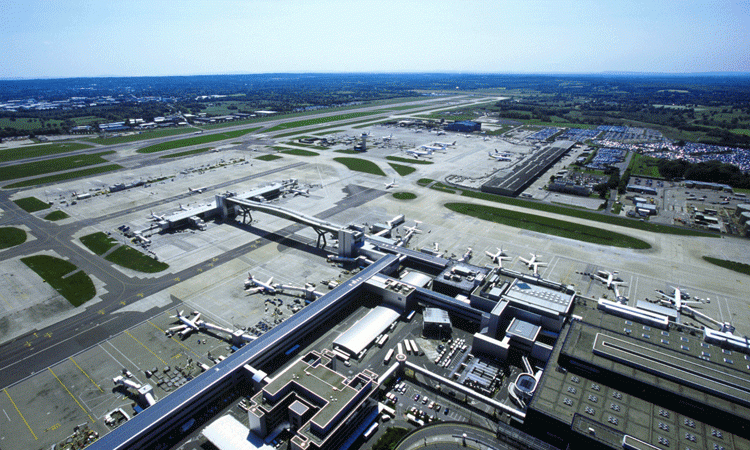Ensuring the stability of Gatwick Airport in the face of the unknown
Posted: 23 October 2019 | Luke Mosley - Gatwick Airport, Tara Nolan (International Airport Review) | No comments yet
Safety and security are necessary elements to secure passenger satisfaction, but weather, fuel spillages and unplanned occurrences can cause massive disruptions. International Airport Review asked Gatwick Airport’s Incident Operations Manager how he prepares for unprecedented events.


Luke Mosley – currently Incident Operations Manager at Gatwick Airport – began his career selling flights in an airline’s call centre. Moving through various roles in airlines, airline operations, media and PR, Mosley has worked for both Bristol and Southampton airports; managing control centres, bringing stand planning in house, developing training packages and managing entire car park operations.
Four years ago, he joined Gatwick Airport, initially as an Airside Operations Manager and then became the Incident Operations Manager two and a half years ago. This role focuses on ensuring the stability of the airport and providing an oversight of the airport campus to make sure that if things start to go wrong, the correct measures and personnel are there.
At Airport IT & Security, Tara Nolan spoke to Mosley about the incidents that have affected Gatwick recently (including drones of course) and how airports can better protect themselves in the future.
Within your years at Gatwick, how many major incidents have you had to deal with? Would it be a correct assumption to say December 2018’s drone incident was the worst?
Well at Gatwick I have dealt with many weather events – mainly snow – and a few runway closures. I was of course around for the drone event, and yes without a doubt it was the most challenging.
As Chief Operating Officer, Chris Woodroofe, has just mentioned in his presentation at Airport IT & Security 2019, it was an unprecedented event for the entire industry. Drones were on the radar before 19 December but the scale of disruption caused by someone purposely trying to disrupt our airfield, brought the issue into even sharper focus. My role has been very instrumental in driving forward our contingency plans for the response to UAS activity, especially within the five-kilometre flight restricted zone, and making sure that our response is measured, whilst working with our air traffic control providers, security teams and the police. The key is to make sure that if our airside operation teams see a drone, we’ll have a measured response; a response that is correct for the situation that we’re facing.
Do you feel more confident in Gatwick Airport’s ability to tackle drones now?
Most definitely. We’ve invested in equipment and technology to provide resilience against drones; obviously it will always be a multi-layered approach.
You will never achieve 100 per cent protection, but we’re in a very good place now.
What are the smaller incidents that cause you problems but that the media don’t cover?
This can be anything from an arriving aircraft that perhaps spills hydraulics on the runway, meaning there is a short period of time where the runway is unavailable; leading to a number of diversions. However, because Gatwick operates such a heavy schedule, we can quickly see potential disruptions.
The smallest of things can have quite a big impact, but we very much try and ensure that wherever possible we prevent things from happening. This is through risk registers, mitigations and control measures for example. By identifying what could potentially cause a problem, we can be prepared and able to act quicker when needed.
If we know something is going to happen, we prepare ahead of time. For example, airline industrial action: British Airways recently had an industrial action with their flight deck community. Beforehand, we held a number of planning events and worked collaboratively with British Airways to make sure we knew what was coming and what we could do to mitigate the disruptions to passengers.
Airport IT & Security, International Airport Review’s annual conference, gathers industry leaders from across the globe to discuss hot topics with airport security, including mitigating measures for drones, insider threats, infrastructure breaches and cyber-risks. Register your interest for Airport IT & Security 2020 now!
How do you prepare the Gatwick team for the unknown, unprecedented events?
We run a number of contingency planning exercises and we work very closely with the emergency services. The police force at Gatwick run a number of contingency planning days throughout the year, and we work alongside these and invite a number of our teams to attend, especially our frontline team, as they will be the individuals first on scene in an emergency.
We try and run through a number of scenarios that perhaps we’ve seen previously, either at Gatwick or at other airports, to gauge best practice and share learnings. You can write the best contingency plan, but you need to be able to test it. Applying a contingency in a real-life situation gives you so many learnings to help you adapt and improve.
What do you predict will be a frequent disruptor for airports in the future?
I believe that weather will always be at the front of that. Weather will always be there and will always be unpredictable.
I think there’s always going to be something unknown that will become a challenge at some point. We had the volcanic ash many years ago, that was never expected. You’ve always got to be thinking about what could come next, but there is always the unknown too.
Are there any new technologies in the pipeline that could significantly make your job easier?
One thing that we’re currently looking at at the moment is an incident management system. This would incorporate all of our logging systems and contingency plan prompts into one system. For example, we could be running an evacuation and when you select the specified area it would give you a number of prompts to action or consider. This is currently in the building process; we will continue to enhance the technology as technology develops.
What is the most important element within an airport’s security approach in your opinion?
In my personal opinion, it has to be consistency.
You see in the press and on social media that passengers flew through one airport and bottled water was not confiscated, but then it was taken at a different airport. When you’re employing thousands of security officers across all the UK airports, and across the world, securing consistency is key.
But ultimately, it’s about passenger experience, the passenger must be at the forefront of everything we do. Safety and security are the backbones for this.
Biography
Luke Mosley has spent 19 years in the aviation industry, working for a major UK airline and three airports. He joined Gatwick Airport in June 2015 having previously held operational management roles in both Bristol and Southampton Airports.
Related topics
Accidents and incidents, Aircraft rescue and firefighting (ARFF), Airport crisis management, Airside operations, Drones, Runways and pavements, Safety, Security, Winter operations


















